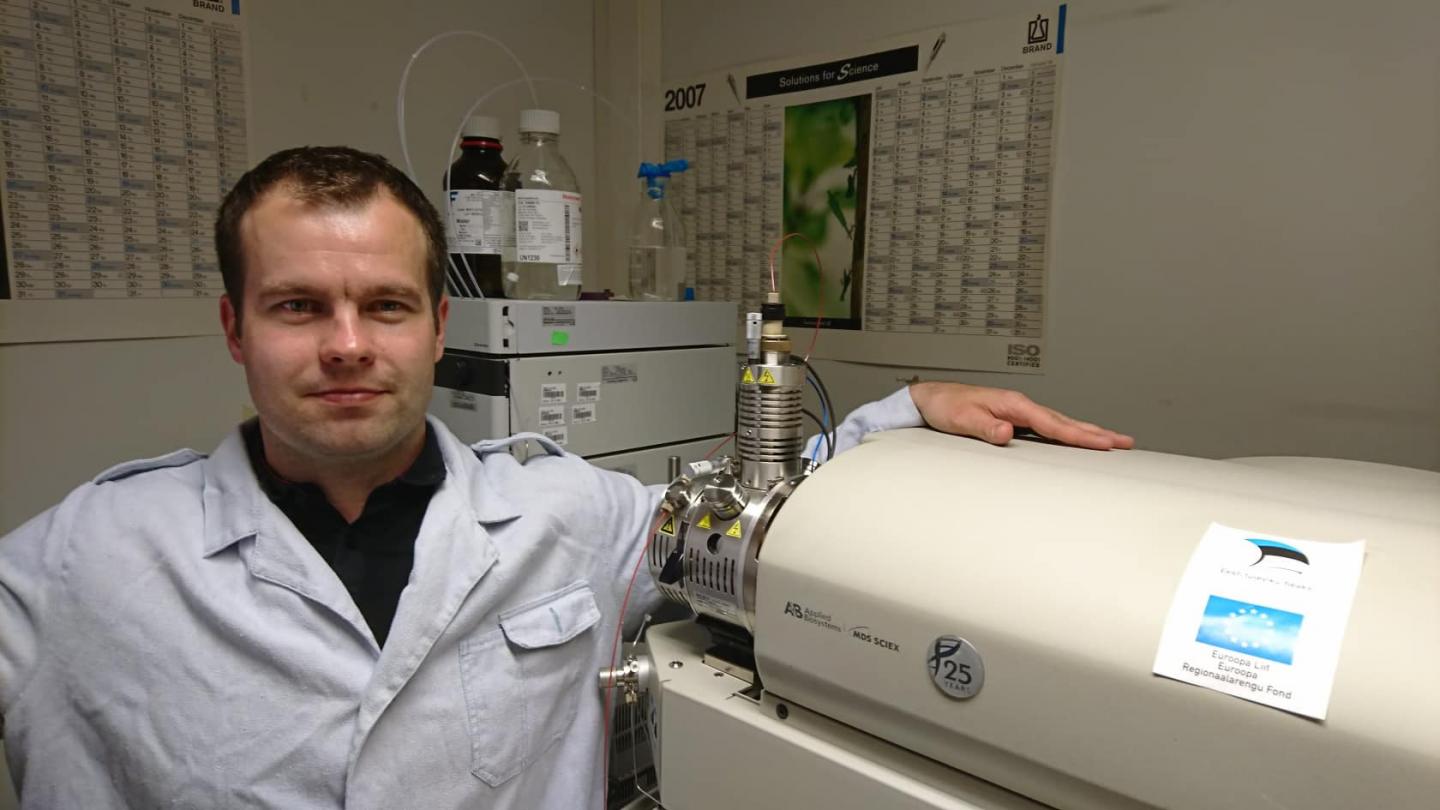
Credit: Rando Porosk
In the Faculty of Medicine at the University of Tartu, the first animal testings were conducted using antioxidant peptides designed and synthesised by scientists in Tartu, which may reduce oxidative stress. Oxidative stress also develops with a rare incurable genetic disease called Wolfram syndrome and it is studied profoundly by scientists all over the world.
Doctoral candidate of the Institute of Biomedicine and Translational Medicine at the University of Tartu, Rando Porosk, explained that oxidative stress is a condition where the reactive species, such as free radicals, dominate over the antioxidant defence system, and this may cause tissue damage as a result, for example. “Oxidative stress is the cause for concern primarily for those whose organism has more reactive species or whose antioxidant defence system is weaker. Deficient defence system may also result from the scarcity of certain vitamins,” described Porosk.
In his doctoral thesis titled “The Role of Oxidative Stress in Wolfram Syndrome 1 and Hypothermia”, Porosk studied the role of oxidative stress in the case of mild hypothermia or reduced body temperature as well as rare Wolfram syndrome. The latter is caused by a wolframin gene defect which also causes diabetes insipidus, diabetes mellitus, optical nerve atrophy and neurodegenerative disorders. A person suffering from this syndrome has diabetes as well as he/she will be blind and deaf.
According to the doctoral candidate, there is knowledge of Wolfram syndrome in the case of wolframin deficiency, as intracellular endoplasmic stress, as well as oxidative stress occurs. “We described the level of oxidative stress more profoundly than ever before in the model of mice suffering from Wolfram syndrome constructed by us and showed how the antioxidant UPF peptides designed by us decrease oxidative stress in various tissues.”
In Porosk’s doctoral thesis, the animal model has been described better when compared with earlier ones. This animal model can now be used in further research for describing Wolfram syndrome. “Profound description of metabolism provides information for further studies on a protein with hitherto unknown biofunction which is also wolframin that causes Wolfram syndrome. This way, its biofunction can be described even more profoundly.”
The mild hypothermia is used quite a lot in clinical practice for avoiding tissue damage. Right now, it is not exactly known what the protective hypothermia mechanism is about. “We showed in the research that mild hypothermia causes a stress response in various cell lines,” said Porosk in conclusion.
###
The doctoral supervisors are Senior Research Fellow in General Biochemistry with the Institute of Biomedicine and Translational Medicine of the University of Tartu, Kalle Kilk, Senior Research Fellow in General Biochemistry, Riina Mahlapuu, and Professor of Medical Metabolomics, Ursel Soomets.
Media Contact
Rando Porosk
[email protected]




